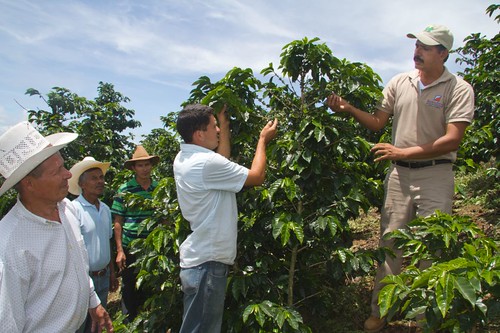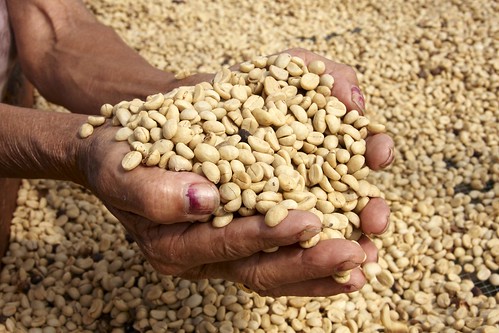
If you can name it, there’s probably a competitive event for it. For instance, coffee has its own competition called the Cup of Excellence. In the coffee world, no honor is more sought after. It is given each year to only top coffees from participating coffee-producing countries.
Countries that have held Cup of Excellence competitions include Brazil, Bolivia, Colombia, Costa Rica, El Salvador, Guatemala, Honduras, Nicaragua and Rwanda. Honduras’ national coffee association, IHCAFE, launched its country’s competition in 2004.
Last year, Honduras’ Cup of Excellence winners included 11 coffees grown by farmers whose cooperatives received USDA assistance through the Food for Progress Program. “In 2006, USDA used this program to donate 15,000 tons of soybean meal valued at more than $3 million to TechnoServe, a private-voluntary organization. TechnoServe sold the soybean meal in Honduras and used the proceeds for two projects, one of which helped not only these Honduran coffee farmers, but the entire Honduran coffee industry,” said Ron Croushorn, Director of Food Assistance in USDA’s Foreign Agricultural Service.
The funds were used by TechnoServe and its local partners to train farmers in irrigation, fertilization, pest control and crop management. The organization also helped clients develop business plans, learn essential business skills and improve their processing and marketing capabilities. Participating farmers have increased their quality coffee production by 70 percent and are receiving an average premium of 11 percent or US$20 per 100-pound bag over the local market price of US$180. For the 2010-2011 crop, those competing in the Cup of Excellence have increased their annual earnings by 150 percent to US$6,000 compared to other cooperative members who earn US$2,400 yearly. In total, 12,780 Honduran coffee farmers and their families benefited from this project.

Coffee is Honduras’ most important crop, accounting for more than a third of the country’s agricultural output. Much of its production is excellent, high altitude coffee; ideal for the specialty market. Previously, Honduras sold its coffee as a commodity with no price premium for quality. Then TechnoServe got involved. It promoted a strategic plan for the industry that focused on improving producers’ skills and building the infrastructure needed to sell coffee to specialty markets.
The next step for Honduras’ Cup of Excellence winners is to compete in the international Cup of Excellence competition. At that event, professional coffee aficionados rank the national winners until the top 10 and then the No. 1 coffee is identified. Winning Cup of Excellence coffees are then sold through an Internet auction.
So drink up. Your next cup of coffee may have won the Cup of Excellence with the help of USDA and TechnoServe. Ultimately, the Honduran growers who produced it deserve all the credit. Through their hard work, they are on their way to a more stable and prosperous future.



